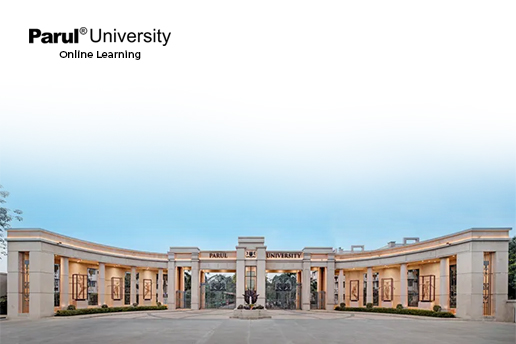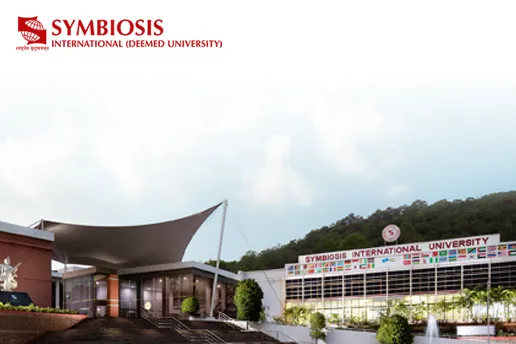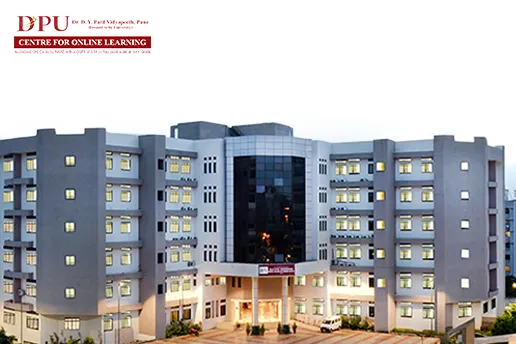Career in Tourism: Job Opportunities, Skills Required and Career Scope
Table of Contents

People nowadays tend to think creatively. Most aspiring professionals do not prefer the traditional 9-to-5 job pattern. Instead, they dream of a career where every day is a thrill, every moment is an adventure. Even established professionals are not an exception. There are many whose passion is traveling. What could be a better option than transforming a passion into a profession? A career in tourism is far better than spending days in stuffy office rooms. Tourism department jobs are not only about being a tourist guide. The industry is brimming with incredibly diverse opportunities.
But how can you thrive in this field? The answer is simple. Upskilling oneself is the only way out. Clear and good communication is the key to success in this sector. Day by day, interest in international tourism is increasing, and new opportunities are coming up. So, this blog will discuss travel and tourism career opportunities in detail to provide you with a way forward.

*freepik.com
Tourism – In a Broader Landscape
Tourism is more than just being a travel agent or a tour guide. To be precise, this is only a small portion of a larger industry. The tourism industry involves various interconnected parts, all of which work together. For example, the people who work in hotels, resorts, and restaurants are also part of this industry. Even the transportation sector, from airline staff and cruise ship crews to train operators and car rental services, is associated with this industry.
What about people working in museums, theme parks, national parks, etc.? And event managers arranging functions and technology experts developing booking platforms—how can they be exempted? The industry has a vast ecosystem, offering a wide range of career paths.
But how will someone know about jobs in the tourism industry? To help those interested in this field, some tourism sectors are mentioned here. It will give a better understanding.
- Hospitality: This sector involves various hotels, resorts, guesthouses, serviced apartments, Airbnb, etc. Even departments like front office, housekeeping, sales and marketing, HR, etc., are part of this sector.
- Travel agencies and tour operations: The tourism industry includes inbound and outbound tour operators, online travel agencies, travel consultants, and others.
- Transportation: Airlines (cabin crew, ground staff, operations), railways, cruise lines, car rentals, drivers, etc., help people reach and travel to their destinations.
- Event management: These organizations cover conferences, exhibitions, weddings, festivals, etc.
- Attractions and recreation: Theme parks, museums, historical sites, adventure tourism (guides, activity managers), etc., also justify the tourism industry.
- Niche tourism: Ecotourism, medical tourism, wellness tourism, religious tourism (growing largely in India), and others are also thriving parts of this industry.
- Support services: Destination marketing organizations, tourism boards, culinary services, etc., are also part of the tourism industry and help customers arrange their travel.
Scope for Travel and Tourism – Diverse Job Opportunities
There are many job roles that can justify a job seeker’s interest. Some of them are discussed here.
Direct Customer-Facing Roles
- Travel agent/consultant: Their job is to plan trips for clients, book flights, accommodations, etc. So, they must understand the client’s needs. They must also be able to handle bookings and research destinations. In this role, any degree in tourism is not mandatory. But IATA certification or relevant experience is always preferred.
- Tour guide: Tour guides lead groups and share valuable information about the sites. Their duty is to ensure the safety of the visitors while giving historical narrations, so they must have a deep knowledge of the site.
- Hotel front office/guest relations: These people create the first impression of the hotel. They manage check-ins, inquiries, and guest satisfaction. So, they must be problem solvers and information providers. Strong communication and service skills are essential for this vital role. A hospitality degree/diploma may help.
- Flight attendant/ground staff: Flight attendants ensure onboard safety and comfort, while ground staff manage airport operations. Both must have strong service skills. These vital aviation roles require specialized airline/airport training, specific security certifications, and a high school diploma.
- Event coordinator/planner: They organize various events, from concept to execution. So, they must know budgeting, vendor management, and on-site coordination. A hospitality or event management degree is preferred, but practical experience is also valued.
Management and Operations Roles
- Hotel manager/resort manager: They oversee the whole operation and ensure guests are satisfied. Therefore, they must be proficient in staff management, budgeting, and marketing. A degree in hospitality management or a related field is preferred for this role.
- Restaurant manager/food and beverage manager: Professionals in this role direct all dining operations, from kitchen to front of house. They have to ensure quality service and profitability. A hospitality degree or relevant certification is needed to be employed in these roles.
- Tour operator: People working in this role must know how to design, plan, and sell travel packages. Their primary responsibility is providing transport and accommodation. So, they must know how to satisfy customers, create itineraries, and negotiate with suppliers. An educational background in tourism, hospitality, or business will work well for this job role.
- Revenue manager: This person ensures that the hotels or travel companies they work for earn maximum revenue. Hence, they must know how to analyze market trends, forecast traveler demand, and adjust rates accordingly. A recognized degree in hospitality or business may work for this, but certifications in revenue management are highly appreciated.
Specialized Roles
- Chef: This person works behind the curtain but handles crucial responsibilities like creating menus and preparing food. Additionally, senior professionals manage the kitchen and handle its day-to-day operations. A degree in hotel management with certain culinary certifications is essential to start working as a chef.
- Spa manager: They supervise an entire spa’s operations, including staff, services, and finances. Hence, they must know how to manage therapists, develop treatment menus, ensure guest satisfaction, and maintain facility standards. A degree in hospitality or business is preferred. But if the manager is certified in spa management or related therapies, it helps their career even more.
- Hospitality analyst: Businesses benefit largely from these professionals as they gather and interpret financial, customer, and market-related data. Their responsibilities are to analyze trends, make forecasts, and create reports to improve revenue and guest experience. Along with a degree in hospitality or business, certifications in data analytics or revenue management are important for working in this domain.
- Ecotourism specialist: These people design travel experiences for tourists that benefit local communities. A degree in environmental science and tourism is preferred, but certifications in sustainable tourism are also highly valued.
- Travel writer/blogger: Their role is to write highly engaging and informative content about exotic destinations. Hence, they have to do extensive research before writing. Anyone with writing skills and English proficiency can do this job.
Some Essential Skills Needed to Build a Career in Tourism
One may think that getting jobs in the tourism sector is only a dream. But in reality, it is not that tough through upskilling. Here are some examples –
Soft Skills (Crucial for Customer-Centric Roles)
- Customer-centric thinking: Always preferring the guest’s opinions and anticipating their needs.
- Time management: Knowing which tasks to prioritize, especially during peak tourist seasons.
- Keeping a positive attitude: Creating a friendly and welcoming atmosphere helps.
- Soft heartedness: Ability to perceive and empathize with the guest’s feelings while controlling one’s own emotions.
Technical and Practical Skills
- Foreign language proficiency: English is essential; knowledge of other international or regional languages is a huge asset.
- IT and digital skills: Proficiency in reservation systems, online booking platforms, social media, data analysis tools, etc., is a plus.
- Expertise in digital marketing and social media management: It is always a plus to be able to promote brands and products/services digitally through Instagram, Facebook, Google Ads, etc.
- Geographic information: Knowledge of local geography and the ability to read maps is a plus.
Education and Training that May Help to Build a Career in Tourism
Many freshers and even experienced professionals now aspire to build a career in tourism. But they cannot succeed without proper education and training. There are newbies who join job-oriented degree programs right after completing their board exams. They can study tourism, hospitality, or travel management at a college or university. These courses give a clear overview of how the tourism industry works. They also teach clear and impressive communication skills, which help to satisfy customers.
Some people may want to take up diplomas or short training programs to upskill or hone new skills.
At the same time, learning certain languages also helps in getting a job in tourism. Professionals working in this industry need to interact with visitors from other countries. So, if they know more than one language, it will definitely help them get a better job and also communicate with the visitors easily.
Other skills, like being patient, friendly, and helpful, are also needed to work in this industry. And what about technology? No career today can be successful without mastering technological advances. People in the tourism industry are also not an exception. They have to learn how to use booking software and social media.
So, a mix of education, training, language skills, and experience can certainly help a person build a successful career in tourism.

*freepik.com
Conclusion
A career in tourism in 2025 provides a golden opportunity. As the global travel industry continues to grow, the demand for qualified professionals is also increasing across various sectors, including hospitality, travel agencies, event management, and cultural heritage. Therefore, individuals can thrive in this dynamic and growing industry with the right education and associated skills, such as excellent communication, cultural awareness, and customer service abilities.
And what if a travel and tourism expert enrolls in an online MBA program available through Jaro Education? Will it not lead to a lucrative career? The answer is an astounding ‘YES’. A degree in management will help these professionals lead businesses to new heights.
Frequently Asked Questions
Is the tourism industry going to thrive in India?
Yes, of course. In India, people are preferring domestic tourism nowadays. This demand will increase with time. More and more people will be employed in different tourism-related roles in the future.
Is the tourism industry stable, especially after the pandemic?
There had been a setback in the travel and tourism industry during the pandemic period. However, the entire world has come out of danger now. The basic demand for traveling will always be there. So, the industry can be considered stable and profitable.
Is there any challenge in a career in tourism?
Yes, there are many. Customers can sometimes be overly demanding, the job hours can linger, unpredictable problems like the delay of a flight or unexpected rain can happen, and so on.
Is the salary potential attractive in this field?
Salaries vary depending on the job role. For the freshers, it is modest. However, for high-ranking officials, the compensation can be attractive.


















